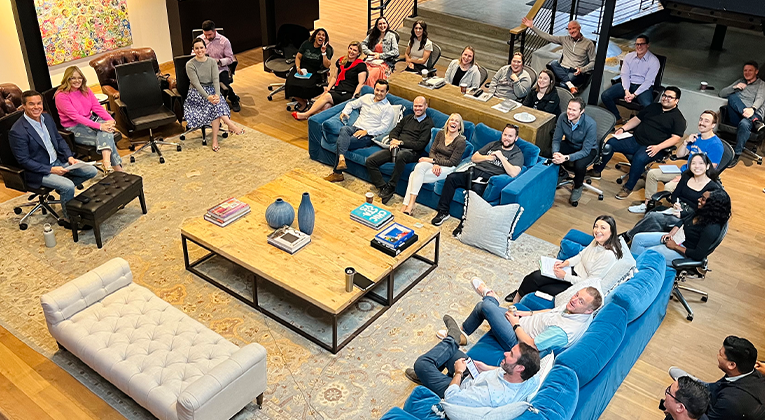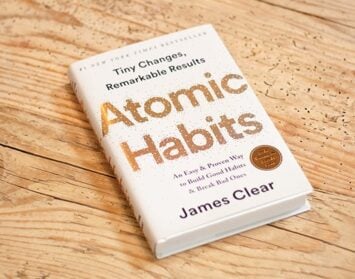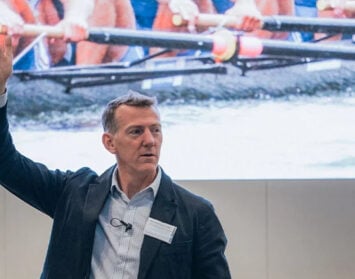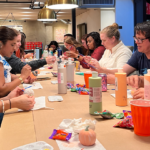By Jason Hughes
Endurance is built by continuous repetition. Over time, muscles become stronger. The heart pumps blood more efficiently. Stamina increases, and once difficult challenges can be easily overcome. Conversely, atrophy occurs when a muscle, heart or mind isn’t used as often. America’s commercial tenants are experiencing something similar—an atrophy of office use. And just as muscles need regular use to develop—building back a strong in-office workplace will take time and steady effort.
But this atrophied state is not a permanent condition. In fact, all signs point to a resurgence of the in-person office—albeit, with a focus on flexibility. As with any new regimen, this shift will require positive, motivating leadership that provides rationale and leads by example, teamwork and clear messaging that this will be a gradual process done for everyone’s benefit, and with everyone’s input.
For centuries, businesses operated in offices—with few exceptions. Before the COVID-19 pandemic hit in 2020, just 5% of office workers were remote, according to the U.S. Bureau of Labor Statistics. As of September 2023, according to Forbes, 12.7% of workers are doing their jobs remotely and another 28.2% work a hybrid schedule, with a majority of these workers expressing little interest in returning to full return-to-office life.
The pandemic changed the status quo and brought about an employee revolution. The forced three-year atrophy from commuting and office life changed the way companies function and has led to real repercussions for business leaders. There is compelling research showing that productivity declines with remote versus in-office work. Multiple studies have found that remote workers are more sedentary, which can lead to a number of health problems, from weight gain to cardiovascular issues. And remote workers often feel isolated and disconnected from their colleagues, which can lead to a breakdown in company culture.
Still, change is hard, and short of a job-loss causing recession, many employees threaten that they’d “rather quit than commute.”
Despite the resistance, companies are beginning to realize that there’s incredible benefit to be found in office conversations, in-person meetings, brainstorming sessions and face-to-face feedback. Many tech companies, including Google, Apple, X (formerly Twitter) and Meta, have set stricter in-office requirements. Financial institutions have done the same, with Bank of America, Goldman Sachs, Morgan Stanley and JPMorgan Chase all mandating regular in-office presence. “We firmly believe that working together in person is important for our culture, clients, businesses and teams,” said JPMorgan executives.
Rather than call workers’ collective bluff, we’ve found through first-hand experience that it’s possible to build back our team’s office endurance over time. By using those office muscles, employees begin to regain soft skills in communication, persuasion, presentation and collaboration that are so essential to productive work and a positive culture—skills that can only be developed in person.
It’s a gradual process. Just as it’s impossible to get back into shape overnight, rebuilding office endurance requires practice over months.
And just like committing to a new fitness program—while the build-up is hard, the regular maintenance once you get there is easy. If your team is out-of-shape, office-wise, and you need to help them build back their office endurance, remember a few key points:
Start Small: Provide flexible work options and engage employees on these efforts.
Advance Slowly: Give it time before adding additional in-office requirements.
Focus On Culture: Celebrate wins, set group goals and provide meaningful perks (think healthy experiences).
When returning to the office is approached with focus, consistency and patience, you’ll lay the groundwork for outstanding long-term results.
Jason Hughes is founder of Hughes Marino, an award-winning commercial real estate company with offices across the nation. A pioneer in the field of tenant representation, Jason has exclusively represented tenants and buyers for more than 30 years. Contact Jason at 1-844-662-6635 or jason@hughesmarino.com to learn more.











